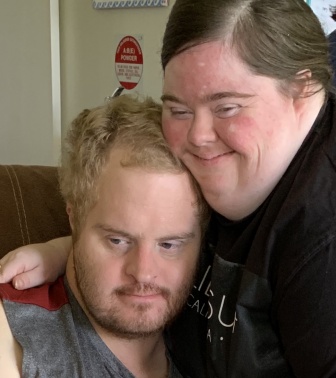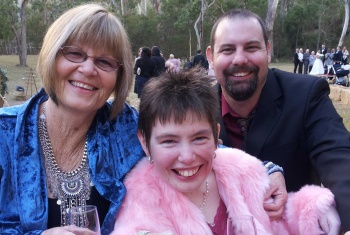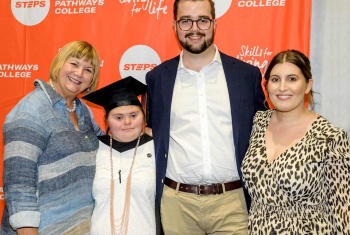A Rockhampton family are leading the way in raising awareness and bridging the gap between people with a disability and their community.
Kevin and Loraine Fox, have been married for 34 years and decided early on in their relationship to adopt.
“We thought about it and decided to adopt children with a disability, specifically children with Down syndrome – that was the intention from the very beginning.”
Just over 30 years ago they adopted eldest son Matthew around 12 months later their second child, Laura joined the family.
Kevin and Loraine, who were both diagnosed with disabilities as adults – Kevin with Klinefelter syndrome and Loraine with bipolar disorder and arthritis, said it was important to foster their children’s strengths and embrace their differences.
“Loraine and I have disabilities ourselves and we know the capabilities of a person with a disability is broad, and our children really bring that out.”
Those capabilities have been enhanced since Matthew and Laura joined the NDIS in 2017.
Matthew now receives funding for speech and numeracy therapy, supported employment, an exercise program and in home-support – he lives independently with his wife Mynissa, who also has Down syndrome.
“Matthew and Mynissa are thriving in their own home, and Matthew has improved his speech so much through regular therapy,” Loraine said.
Laura receives funding for speech therapy and support workers to drive her to and from activities including choir. Laura also receives funding for a communication device.
“The ability to help her get her messages across is going to be such a huge thing, it will do so much more for her.
“Because of the NDIS, Laura has been able to broaden her scope enormously and she has come along in leaps and bounds.”
“Our two adult children have been given support to be more active and accepted in the community.
“Matthew and Laura’s effect on the community is amazing, they’re becoming the teacher rather than the one taught and it’s the NDIS that’s allowed that.”



